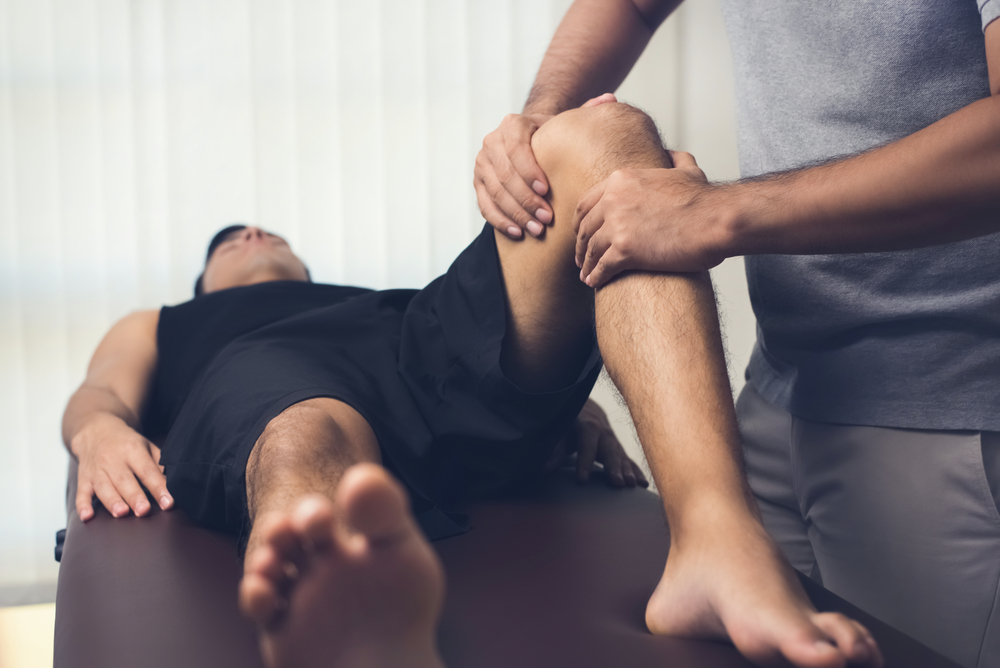With approximately one in four rugby players becoming injured during the season, it’s no surprise that many are looking to massage to manage or prevent injuries. This is because, in addition to therapeutic treatments like cryotherapy, massage can assist rugby players in lowering their risk of injury. The demands of the sport mean that many rugby players acquire injuries relating to overuse as well as trauma caused by hard impact. With this in mind, here’s how massage can help treat these injuries and get rugby players in peak form come game day.
Why rugby players should have a massage
Rugby is a full-contact sport, so injuries are almost always a repercussion for anyone who plays the game. Neck injuries are the most common injury for rugby players, with up to 25% of them caused by heavy impacts or tackles. Additionally, over 40% of injuries sustained during rugby are muscular strains and bruising.
Players also engage in a lot of running, sudden stopping and tackling. This leads to overuse injuries commonly presenting in the knee or ankle, resulting in tendonitis or bursitis. Injuries like these can adversely affect a player’s performance and endurance, leading to further complications if not treated. Traumatic injuries such as sudden impact, head and neck, or facial injuries can also result in fractured or broken bones, sprained ligaments or tendons, and deep muscle bruising.
Massage therapy can help manage and reduce the pain from some of these injuries, as it focuses on treating the muscles, tendons, ligaments and tissues that are being put under constant stress and strain during rugby. A sports massage can also speed up a rugby player’s recovery process and prevent injuries from becoming a more serious problem. Whether you’re a professional athlete or a weekend sportsman, massage therapy can be used as preparation for a match, to relax and relieve tired muscles post-match, and to prevent or treat injury brought on by overuse or trauma. Massage helps by increasing blood and oxygen flow to the muscles, removing lactic acid and reducing aches and pains, as well as targeting scar tissue that may have accumulated around the injured area.
Types of massage for rugby players
The main goals of massage therapy for rugby players is to increase range of movement, decrease pain, manage anxiety, and also reduce muscle stiffness or tenderness. Massage is also widely used by rugby players to prepare for exercise and to accelerate recovery after training and competition. The following types of massages are proven to be hugely beneficial for rugby players:
Sports massage
Sports massage therapy is widely used in rugby during the training phase of match preparation. Sports massage helps to reduce inflammation, aid in early recovery, and provide pain relief from muscular injuries. Sports massage therapy initiated immediately after exercise and 48 hours post-exercise is effective in reducing muscle oedema and decreasing damaged muscle fibres. Sports massage also alleviates secondary injury, reducing nerve sensitisation. This results in reduced pain and helps to prevent injury and speed up recovery from tissue damage.
Deep tissue massage
Deep tissue massage can help rugby players prevent injury and aid players after games during the rehabilitation process. Deep tissue massage is particularly effective when it comes to overuse injuries. After muscles are used extensively, fibres can become damaged and toxins can accumulate. This build-up of lactic acid is responsible for that stiff and achy feeling after exercising, known as delayed onset muscle soreness (DOMS). Deep tissue massage strips the muscles, applying pressure to the individual fibres and deeper layers of muscle, to ease tension and encourage circulation. This can assist players in recovery as well as increase range of movement by restoring elasticity and flexibility in the joints and muscles.
Whole body massage
Many rugby players benefit from regular whole body massages to help recovery as well as to reduce anxiety. A whole body massage is great for relaxation and calming pre-game anxiety. This is because it’s a more gentle, relaxation-focused massage that calms the nervous system and relieves tension in the body.
Managing rugby injuries with massage
Recovering from an injury or preventing an injury as a rugby player is possible through massage. For a successful rehabilitation and treatment plan, it’s important to find a qualified massage therapist. Choosing a massage therapist with qualifications from an accredited massage school like Discover Massage Australia will help you to achieve a successful recovery and pain prevention program.

